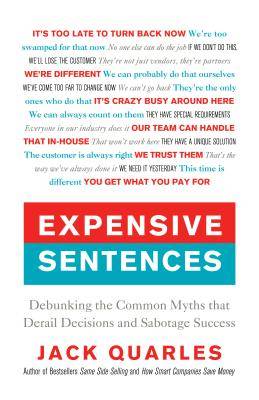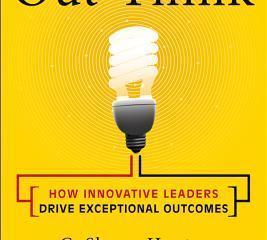
Starting a business may seem like a daunting process. However these five tips will guide you on your journey to entrepreneurship:
Do your research.
I can’t overemphasize the value of doing extensive research to make informed business decisions. Research will serve as the foundation for determining your business structure.
Often business startups come with the opportunity to work with a variety of business partners. Partners typically include investors and individuals that generate business concepts or ideas. Before any formal arrangement is made, research your potential business partner. Talk to his or her previous partners if you are able to do so. County records are a reliable source of information to examine if your business partner has a history of litigation, bankruptcy, or other issues that may make you reconsider the partnership.
As an entrepreneur, you need to protect your assets; selecting a partner that will contribute to the company’s future prosperity is vital.
Select a corporate structure and obtain business licenses.
After researching potential business partners, you will need to select a corporate structure. There are several corporate structures to choose from: Sole Proprietorship, Partnership (general and limited), C Corporation, S Corporation, or Limited Liability Company. I recommend working with an accountant and your business lawyer to determine the best business structure for you. This analysis will include a walk-through of the tax implications, liability exposure, management requirements, restrictions, and obligations. This is also a good forum to discuss ownership and control issues.
Additionally, you must consider all state statutes in relation to obtaining your business license. Talk with your business lawyer to determine which state, county and municipalities require you to have a business license and to determine whether your business is exempt from such requirement.
When determining the business model that works for you, evaluate potential risks, take pre-emptive measures to ensure the longevity of your business and think about your long-term goals for the business. For example, do you want to build up the business quickly for sale or is your plan to grow it slowly over time and pass it down to key employees and your children? All of these discussions will help you, your business law attorney and accountant develop a solid structure that fits your immediate needs as well as long-term goals.
Understand your tax obligations.
The federal government levies four types of business taxes: income tax, self-employment tax, taxes for employees and excise taxes. In addition, the state just passed the most comprehensive tax package in its history. You should consult with your business law attorney and accountant to discuss your tax obligations.
Knowledge is power and not paying your taxes because you did not understand that you were required to do so is not a defense nor is it good business judgment. At a minimum you will find yourself owing back taxes and paying penalties and fines. Take the time to understand your tax requirements and document your business transactions thoroughly. This will save you time and money in the long run.
Put agreements in place.
The importance of minimizing risks is imperative to your business’ success. Many new business owners and entrepreneurs delay putting agreements in place with key people because of budget constraints, time, and often over fear of confrontation with individuals, suppliers and customers they see as integral to their success.
As one client put it “You want me to talk about divorcing my business partner before we are even married?” My answer is “Yes, that’s exactly what we are going to do!” As time goes on, it can become even more uncomfortable to initiate the discussion and put your handshake agreement in writing. Get it done up front.
Together with your business partner, discuss triggering events that may occur over the course of your partnership. Certain questions to address are: What will happen to the company if one of you gets divorced, becomes disabled, dies, or files for bankruptcy? Would your business be affected by the “bad acts” of a business partner? For example, I represented a large corporation with hundreds of employees and part of its business was “on the job safety.” Because a good reputation for safety was key to attracting top talent and to the company’s success, It put into one of its corporate agreements a requirement that if a partner of the company was convicted of a DUI that partner would be forced to sell his interest in the company at a substantial discount to the other partners.
Put agreements in place with your employees, customers, suppliers and independent contractors. Explore hypothetical triggering events in great detail. These agreements will be your guide to handle issues as they arise and provide recourse in the event there is a breach.
Should you register a trademark?
Your business name, products and service names are assets of your company. You should sit down with your business attorney to discuss when the appropriate time is to trademark. Trademark registration is not required but it does provide the business owner with protection under trademark law.
At a minimum you should do a search on the U.S. Patent and Trademark Office website as well as Google to determine if the name is being used. It can be very upsetting and costly when you receive a cease and desist letter from the rightful owner of the trademark. Imagine the expense of rebranding and reprinting marketing and corporate materials because the appropriate research was not done ahead of time. Have a discussion with your business law or intellectual property attorney and they can advise and assist you with the trademark application process.
Use your business law attorney as a trusted adviser. Do not be afraid to discuss budget constraints. He or she can help prioritize what needs to be done. Your business law attorney should work closely with your accountant and insurance agent to coordinate a comprehensive strategy so that you, the business owner, can stay focused on the growth and development of your business while they mitigate risk and work to reduce and eliminate potential roadblocks. Collaboration is paramount to a successful business venture.
Alexis G. Michaud has been practicing transactional law for 13 years. She provides advice on a full range of business, tax and estate planning issues Michaud helps new businesses with entity formation and established businesses with contract review, mergers and acquisitions as well as succession planning. Before joining McCormick Barstow she was an associate in two of Las Vegas’ largest firms focusing on estate planning for high net worth clients, business law and mergers and acquisitions. She has served as general counsel to Avalar Inc., an international real estate company, and as associate general counsel to TRIRIGA Inc., a Nevada software company which was acquired by IBM. Most recently, she served as a consultant to IBM specializing in the areas of acquisitions, integration, software licensing and Cloud based services agreements.







